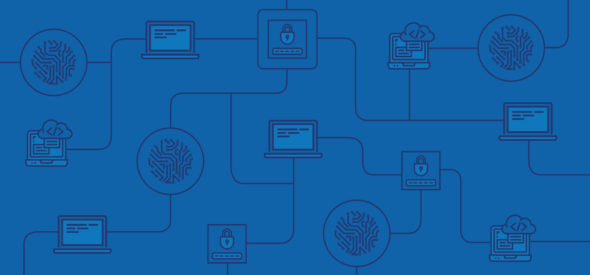ADC participates in master lecture on accessible navigation through PUEDA campaign
On April 11, the Association for Civil Rights (ADC) took part in a master lecture on accessible navigation and the current situation of accessibility in Latin America, through its PUEDA – For an Accessible Digital Environment campaign. The event was organized by Agencia Conectividad Córdoba (Córdoba Connectivity Agency) and DALAT Desarrollo Accesible Latinoamericano (Latin American Accessible Development).
ADC researcher and PUEDA project coordinator María Sol Abichain, and Emiliano Naranjo, specialist in inclusive education and member of the PUEDA collaboration table, were part of the panel.
During her intervention, Abichain shared the study carried out together with the Disability Observatory of the National University of Quilmes in 2018 and 2019, inquiring about web accessibility in Argentina, Chile, and Uruguay. “We selected a total of 389 portals and pages from the three countries, on which we carried out automatic validations using online tools, and semi-automatic validations, where experts verified the results using tools and authentications by people interacting with the page,” she said.
As for the conclusions of the report, Abichain pointed out: “It was found that in addition to a low level of awareness on the subject, there is a considerable gap between the current regulations and the reality of portals and web pages”.
In turn, Naranjo indicated that “PUEDA’s proposal is interesting, not only because it provides a set of guidelines to design and build accessible digital environments, but it also invites us to consider what criterion of justice is applied by the people who program the pages we visit”. Because from this position, “we are the ones who allow people to be able to access a website or not.”
“As far as the region is concerned, the digital sphere is similar to the analog in terms of rights protection: there are barriers that we must manage, somehow, to overcome together, or even better, build spaces where such obstacles do not exist from scratch,” stressed Naranjo.
To conclude, Abichain elicited that “accessibility requires a process of unlearning within our professions, in which we were trained to create projects and conceive a type of communication with barriers… It is necessary to re-learn; however, in this second learning instance, accessibility demands that it is not done alone, but by exchanging experiences, adding different points of view and, above all, including those people who encounter the barriers that hold them back from navigating, interacting and participating in the digital sphere,” she remarked.
The panel was completed by Martín Baldassarre, programmer and specialist in digital accessibility and usability, from Argentina; Alina Soto, consultant in inclusion and accessibility, from Costa Rica; Annie Carrillo, an expert in the creation of accessible digital content, from Mexico; and Consuelo Correa Barros, UX researcher, from Chile.
If you missed the talk, you can click here to watch it.
